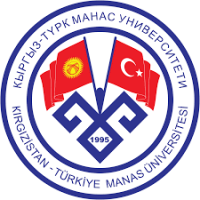Research Article
Aim & Scope
To publish results of fundamental and applied researches and spread the progressive ideas in fields of economics of domestic and foreign scientists among the CIS and far abroad.
The main purpose of the peer-reviewed journal "Reforma" is the creation an information resources, necessary for the coverage of the results of research activities of Kyrgyz and foreign scientists, promoting the development of economics, applied research and teaching.
Author Guidelines
Writing Rules
1. Articles should be consistent to the subject of the journal, be analytical, not descriptive; the issues under consideration should be scientifically significant and relevant. Review articles should contain conclusions and generalizations.
2. It is necessary to formulate an author's approach to the topic. The author's position must be reasoned and logically sustained.
3. The title should fully comply with the content of the article and be abridged.
4. The article should refer to both the literature sources and the sources of statistical data given in it.
5. The journal does not publish materials containing elements of plagiarism and any other unauthorized use of objects of another's intellectual property.
6. Received articles are being reviewed anonymously. If the article is positively evaluated by the reviewer and meets the requirements for scientific articles, the author is notified about it by e-mail. If a negative review is received, the author is also notified by e-mail with a reasoned explanation of the reason for refusing to publish it, and the author does not receive the manuscript back.
Technical requirements for the preparation of articles
The text of the article should be typed in the Word editor, on A4-size sheets, Times New Roman font, size 12, automatic transfers, line spacing - one and a half. Fields: left and right, bottom and top - 2 cm. Figures should be necessarily grouped or embedded in the object (picture MS Word). Complex formulas are performed using the MS Equation formula editor inserted-in in WinWord. The sequence number of the formula is indicated in parentheses (1) and placed with the switch to the right. Graphs and figures should be inserted into the text after the first mention of them in the text. All graphs and figures must be named and numbered. Scanned tables and drawings that cannot be edited and have poor playback quality are not accepted! Color and shading in tables and drawings are not allowed!
All the abbreviations used in the text should be deciphered, and new unfamiliar terms should be explained.
The volume of the article can range from 5-15 pages.
Each scientific article sent to the journal should include the following data:
1. Information about the author (authors) in Russian, English and the language of the article:
• Last name, first name, patronymic (fully);
• The full name of the organization - the workplace, country, city of each author. If all authors work in the same institution, you can not specify the workplace of each author separately;
• academic degree, academic title, the author`s position;
• e-mail address of each author;
• contact phone number for communication with the authors (one number for all authors is allowed).
2. The title of the article in Russian, English and the language of the article.
3. Abstract in Russian, English and the language of the article.
The abstract includes a description of the main subject, the problem of the object, the purpose of the work and its results. The annotation indicates new studying things in comparison with other related subjects and purpose. The text of the annotation should be concise and clear, free of background information, superfluous opening words, general and insignificant formulations.
The recommended volume of the annotation is 500 characters.
4. Keywords in Russian, English and the language of the article.
5. Articles written in Turkish should contain author's data, title of article, annotation and keywords in Turkish, Russian and English.
6. References
Bibliographic list of sources used, notes are provided at the end of the article in the order they are mentioned in the text. Square references [1, p.14], [15] are used to refer to literature sources and notes. Bibliographic references should be made in accordance with the accepted rules (GOST 7.0.5-2008, Bibliographic reference: General requirements and drafting rules).
COPYRIGHT FORM
Examples:
Monograph
Toynbee, AJ Civilization before the court of history. - Moscow: Progress, 1996. - 480 p.
Article from the magazine
Adorno, TV To the Logic of Social Sciences // Issues of Philosophy. - 1992. - No. 10. - P. 76-86.
Article from the collection
Kuznetsov, A. Yu. The Consortium - the mechanism of organization of subscription to electronic resources, Fundamental Research Fund: ten years of service to science. - Moscow: The Scientific World, 2003. - P. 369-342.
The thesis abstract
Glukhov, VA Research, development and formation of electronic delivery of documents in the library: Author's abstract. dis. Cand. tech. sciences. - Novosibirsk, 2000. - 18 with.
Thesis
Fenukhin, VI Ethnopolitical conflicts in modern Russia: thesis. ... cand. on-liter. Science. - M., 2002. - P. 54-55.
Conference materials
Marin, DV The development of a new calculation methodology // Ecology of nature management: tezises dokl. Vseros. Conf. (Irkutsk, 11-12 September 2000). - Novosibirsk, 2000. - P. 125-128.
Internet resource
The market of trainings of Novosibirsk: its own game [Electronic resource]. - Access mode: http: // nsk.adme / en / news / 2006/07/03 / 2121.html (date of circulation: 17.10.08).
Ethical Principles and Publication Policy
Publication ethics
The interaction of the author, editorial board and editorial staff of the journal is based on ethical standards (norms) adopted in the publishing world, taking into account mutual interests and principles of editorial policy, which implies:
• publication of articles that meet scientific standards, are reasoned, innovative and / or exploratory in nature;
• publications on topical theoretical and empirical problems;
• an opportunity to express the author's points of view, which do not necessarily coincide with the opinion of the editorial board and editorial board, but have convincing arguments, a logically structured analysis;
• the journal represents economic science, therefore the publication of articles belonging to the field of other sciences is rejected at the stage of their receipt;
• for the objectivity of the assessment of manuscripts, the journal uses peer review ("half-blind" review by the editorial board), and also, if necessary, the manuscripts are sent to external experts (blind review);
• compliance with the technology of passing the manuscript and timely notification of authors about its passage;
• selection of materials for the current issue is determined by editorial plans. The editors reserve the right to shorten and edit articles. At the pre-agreed request of the author, editorial revisions are subject to agreement.
Ethical principles of the author
1. The author submits a manuscript testifying to his personal participation in the development of this topic. The author with whom there is a correspondence regarding the publication is responsible for ensuring that all coauthors are indicated, as well as for ensuring that all coauthors see and approve the final version of the article and agree to submit it for publication in the journal.
2. The author does not use material that constitutes plagiarism. If authors have used someone else's work and / or words, then they should be appropriately cited.
3. The author undertakes not to publish the submitted manuscript in other publications, to notify the editorial office of the transfer to another publication.
4. The author has the right to withdraw the article at any stage of its consideration with the obligatory notification of the editorial board.
5. The author is obliged to comply with the requirements for the manuscript format.
6. If a significant error or inaccuracy is found in the published work, the author is obliged to notify the editor of this and cooperate in correcting it.
7. Slander and offensive statements against other authors and publications are unacceptable.
Ethical principles of peer review
1. Articles submitted for discussion are evaluated on the theoretical, methodological and methodological grounds of the submitted manuscript, by comparison with the level of world and domestic sociology.
2. In case of a conflict of interest, the reviewer warns the editorial office and refrains from reviewing.
3. Reviews must be prepared objectively. Personal criticism of the author is unacceptable. Reviewers should express their opinions clearly and reasonably. With the help of recommendations, the reviewer can help the author improve the materials submitted for publication. Priority is given to the merits, not the demerits, of the manuscript.
4. The manuscript received for review is a confidential document. It cannot be shown to anyone or discussed with anyone, except as approved by the editor.
Ethical Editing Principles
1. The editor must, within 2 months from the date of registration of the manuscript, decide on the fate of the received manuscript.
2. When making a decision, the editor relies on the opinion of the editorial board, and also, if necessary, involves external experts.
3. The editor evaluates only the intellectual content of the manuscript, regardless of the status and other characteristics of the author. The exception is made by novice authors (graduate students), the editor pays special attention to working with them.
4. The editor keeps in touch with the author in the process of passing the manuscript in the journal, submits a generalized answer (in case of refusal to publish) based on the opinion of the editorial board or experts.
Price Policy
Dergimizde Makale işlemleri ve yayınlama ücretsizdir.
Indexes
Other Indexes
Journal Boards
Scientific Publication Coordinator

Editor in chief

Associate Editor
Field Editors


Dastan Aseinov, Maliye alanında doktorasını (PhD) Kırgızistan-Türkiye Manas Üniversitesi'nde 2016`da tamamlamış olup, halen aynı üniversitenin İktisadi ve İdari Bilimler Fakültesi, Finans ve Bankacılık Bölümü'nde Yardımcı Doçent Dr. olarak görev yapmaktadır. Araştırma ilgi alanları arasında bankacılık etkinlik analizi, ve bankacılık sektöründe performans değerlendirmesi yer almaktadır. COVID-19’un Kırgızistan’daki bankacılık ve KOBİ’ler üzerindeki etkisi, maliyet etkinliği ile kredi kalitesi konuları üzerine çalışmalar yürütmüştür. Hanehalkı ve firma düzeyinde yürüttüğü çalışmalarda, özellikle göç, finansal kısıtlar, yenilikçilik ve çevresel adaptasyon konularına odaklanmaktadır. COVID‑19 krizinin KOBİ’ler üzerindeki etkisi, finansal erişimin firma davranışları üzerindeki rolü ve mikro düzey verilerle yapılan politika analizleri başlıca ilgi alanları arasındadır. WBES ve MICS gibi uluslararası veri kaynaklarını kullanarak Orta Asya özelinde çalışmalar yayımlamıştır.
Editorial board

Technical Editor










